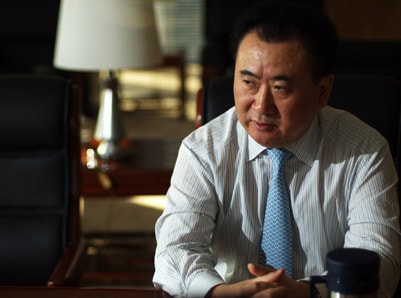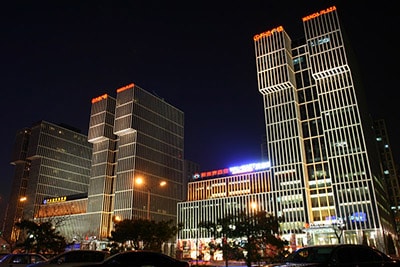
Wang Jianlin is aiming at first-tier cities for the big league money this year
Dalian Wanda Commercial Properties says it will stop buying land for new mainland residential and office projects, except in first and second-tier cities, as housing markets in China’s smaller urban centres continue to suffer from a prolonged real estate slide.
The developer that helped make Wang Jianlin China’s richest man will still pursue retail and hotel project across China, but said in an earnings call with investors this week that it was focused on opportunities in the mainland’s first and second tier cities, according to an account in Reuters.
Wanda’s plans come as China struggles with a property market which is increasingly split between cities like Shenzhen, where prices have grown by more than half in the last year, and smaller inland cities where a stagnant manufacturing sector and an overhang of unsold homes continues to drag down property values.
Developer Prefers the Big City Environment

Wanda’s projects, such as this one in Beijing, have traditionally combined housing, office and retail
“We have got good sales performance in first-tier and key second-tier cities and are confident about the future,” Wanda Commercial’s Qi Jie, was quoted as saying in the China Daily. Wanda Commercial is the Hong Kong-listed property arm of Wang’s Dalian Wanda Group, which has increasingly been turning its attention to entertainment and sports projects in recent years.
During the last year China has seen a sharp property rebound in first-tier cities such as Shenzhen, where home prices have risen more than 57 percent since last March. In Shanghai, prices have climbed 21 percent over the same period, while the other first tier cities, Beijing and Guangzhou are also showing strong demand, according to official figures.
However, the story in China’s smaller cities is much different. Even after the government has cut down-payments three times in the last 12 months, and reduced interest rates six times since 2014, 15 of China’s 70 largest cities still reported falling home prices last month.
Can Wanda Really Build 900 More Hotels in China?
Perhaps more surprising than Wanda’s decision that it would stop building more housing and offices in third, fourth or fifth-tier cities, was its indication that it would continue to build shopping malls and hotels in these locations.
Despite signs of slowing growth in traditional retail in China, Wanda announced in 2015 that it would expand its portfolio of malls from 100 to 900 in the next decade. By the end of last year the company had launched its 135th Wanda Plaza shopping centre, and has said that it will open 50 more in 2016.
While Wang Jianlin likely realises that China’s smaller cities are as oversupplied with malls as they are with housing, his company has also made large scale retail and hotel development an integral part of its plan to develop a series of tourist destinations and amusement parks around China.
Wanda announced in late 2014 that it would be pursuing an “asset-light” strategy for its future retail projects on the mainland, which would involve outside investors funding and owning the property, while Wanda develops and manages the mall in return for fees or share in the profits. The company’s residential projects continue to require Wanda to invest its own money, or funds from banks, with revenue depending on its ability to sell units in the developments.
Leave a Reply